In 1936, Natsumi is the third of four daughters from the Sekiya family. One day, Natsumi’s father suddenly tells her that her marriage has been decided and her husband will be Takimasa Ebata, who is an officer of the imperial navy. She is surprised by her father's announcement. She has never had a romantic relationship and she has never met Takimasa Ebata before. Even for their wedding, Takimasa Ebata is unable to attend due to his naval training. Natsumi holds the wedding ceremony with Takimasa Ebata's picture. She cannot hide her embarrassment at the way their marriage begins. Later, after Takimasa Ebata's naval training finishes, she meets him for the first time. She is uncomfortable because he doesn't express what he thinks or feels. Nevertheless, Natsumi supports him as his wife and works hard with housework. As time goes by, she notices his kindness and gradually opens up to him. (Source: AsianWiki) ~~ Adapted from the manga series "Nami Uraraka ni, Meoto Biyori" (波うららかにめおと日和) by Nishiga Hachi (西香はち). Edit Translation
- English
- Русский
- Français
- Español
- Native Title: 波うららかに、めおと日和
- Also Known As: Nami Uraraka ni, Meoto Biyori , The Waves Are Gentle and the Weather Is Perfect , なみうららかに、めおとびより
- Screenwriter: Izumisawa Yoko
- Director: Hirano Shin
- Genres: Historical, Romance, Life
Cast & Credits
- Yoshine Kyoko Main Role
- Honda Kyoya Main Role
- Yamamoto Maika Support Role
- Koseki YutaFukami RyunosukeSupport Role
- Komiya Rio Support Role
- Tozuka Junki Support Role
Reviews

A heartwarming romcom and my all-time favorite for the genre
[EDIT: I have now completed all ten episodes of the show <3)-----
Sometimes, love doesn't need loud, elaborate declarations for it to be felt. Sometimes, it can be felt strongly with just having someone to greet you when you're home, someone to share a meal with, someone to have a casual conversation with over dinner, and someone to sleep beside you. They are all just simple acts that are done in everyday life, but even then the warmth it emits is something you would always treasure. Because no matter how mundane it all is, having someone you love and care for to live such an ordinary life with you is what makes it special. And that is essentially what Nami Urakaka Ni, Meoto Biyori is.
From the very start, Meoto Biyori lived up to its main premise: that it’s a romantic comedy depicting the ordinary life of an arranged marriage couple during pre-war Japan. Nothing more, nothing less. And that made the show so addicting. It was just refreshing to see romantic comedies at its very core, showing a relationship grow from the roots and flourish as time passes with a few awkward moments along the way. In every episode you could see how they grow closer and closer, and there wasn’t any moment of regression. Every heart-fluttering moment, no matter how conventionally tropey some it is, is portrayed so sincerely that it feels giddy yet heartwarming at the same time. To provide a more comprehensive review:
STORY – the show itself doesn’t promise excellent storytelling, which you might expect in acclaimed dramas like First Love. Instead, the story itself leans more to depict ordinary life. And that made it very special. One thing I would like to note is that compared to other arranged marriage dramas, the show never made the arranged marriage the point of the show; only the starting point. Whatever Natsumi and Takimasa did to progress their relationship was due to their actual free will and interest in one another, rather than them thinking that “we’re married now, so we have no choice by to make it work.” They naturally started closing in on the distance without forcing it, and let their affection grow without restricting their feelings from moving to the next level. But then, it's not really all giddiness. Since the story itself is set in pre-war Japan, the story also delves deeper into the couple’s inner anxieties surrounding the tensions that are rising at that time, especially since Takimasa (the husband) is part of the Navy. With this, it brings an extra element of heaviness as we peek through the life of people who lived through that period of uncertainty, of a “peace” that is threatened by an upcoming conflict.
Moreover, I LOVED how they made use of a narrator! Honestly, I dislike doramas with narrators because I think it overemphasizes the fiction behind it all, but for this dorama it worked out very well in adding more depth to the main characters. It adds a lot to the comedy department too!
THE MAIN COUPLE – Individually, I loved that while both Natsumi and Takimasa exhibit characteristics of a conventional dorama FL and ML, they have so much more depth to them than the stereotypical ones so far. Natsumi is naïve and innocent, but also honest, forward, and steadfast. She’s timid, but never passive. Takimasa is stern (though the "coldness" only lasted for one and a half episodes lol), but is also awkward, unintentionally & intentionally expressive, honest, and caring. It is very refreshing to see them provide a new take on personalities we’ve been seeing for years.
As a couple, I personally think that by far, Natsumi and Takimasa is one of the healthiest fictional couples I’ve seen in the world of Asian dramas. Even from when they were still "married strangers", Natsumi and Takimasa have always been concerned and gentle with each other. They exhibit maturity despite their inexperience in relationships in general. They communicate their feelings well, they don’t forcibly cross boundaries, and they choose not to rush things. They even trust each other ENTIRELY, that even in bouts of jealousy they think that “Natsumi/Takimasa is not the type of person to betray me.” They are also very sensitive to each other’s emotional needs and ensures that they are met. Moreover, they even ask for consent when they try to start doing something physical (even if it's just holding hands), which I love. And the moment they became affectionate, they let their feelings flow naturally.
However, what I find most refreshing about Natsumi and Takimasa is that they barely have misunderstandings because they don’t shy away from talking about uncomfortable topics (that other dorama couples would AVOID talking about at all costs, making us all pull our hair out). With the both of them, it was the first time where I didn’t undergo the process of having to convince myself of the love the characters had for one another. Even without words, it was already very obvious.
THE ACTORS – To be honest, I first doubted the chemistry of Yoshine Kyoko and Honda Kyoya when they were first announced as the cast. I’ve watched some of their previous dramas, and I couldn’t imagine how their chemistry would turn out. But Kyoko and Kyoya had an amazing chemistry and they seem to adjust to each other’s frequencies very well. Kyoko would rely on subtle emotional delivery to balance out the (initial) stoicism of Kyoya’s character, and Kyoya would match Kyoko’s level in scenes where Natsumi’s emotions are heightened. As a viewer, I felt SO much emotion even with their glances and hand-holding. They didn’t even need an intense slowed stare-down with a romantic background music for you to feel that “wow, Takimasa and Natsumi are in love.” What I found to be the most heart-fluttering moments were them glancing at each other with no music at all, but it’s obvious from it that all they see is each other. It has so much weight to it.
While both their characters require animated reactions (which JDramas are infamously known for), they never made it feel cringe or awkward. Actually, I found it lovable.
For the actors themselves, even though Yoshine Kyoko is 8 years older than the age of her character, she perfectly encapsulated the innocence and naivety of Natsumi. Her clumsiness wasn’t a bothersome clumsiness, but a cute one. Her portrayal of loneliness over a husband that has to consistently leave their home for work is very convincing and it really sets a serious tone. Honda Kyoya, on the other hand, was a surprise for me. He decided to offer something fresh as Takimasa, showing that he’s capable of more than what he’s normally typecasted as. He did very well in portraying a stern but internally awkward man. And, even from his facial expressions alone, you can see how Takimasa’s walls are crumbling bit by bit as he softens and acknowledges his feelings for Natsumi. Also, since much of Takimasa’s character in the first episodes could only be discerned from his inner thoughts, he did a really good job of “appearing cold,” while his eyes say otherwise. Both of them captured the essence of Natsumi and Takimasa from the manga while also making them their own, and I honestly couldn’t imagine a Natsumi that is not Kyoko, and a Takimasa that is not Kyoya.
THE SIDE CHARACTERS – I’m not even exaggerating. This is the first and only drama where I actually rooted and looked forward to the stories of the side characters. Fumiko and Fukami were very interesting characters, since they were the opposite of Takimasa and Natsumi’s traditional marriage. They were the ones who add discussions over the foundations of marriage. But even then, their chemistry is superb. Hope that Koseki Yuta and Yamamoto Maika would have a separate project in the future!
THE CONS – Of course, there is no perfect JDrama (though this one is nearing it for me). The very prominent con of this dorama is the CGI. It’s literally very meme-able that even Japanese viewers say “this drama is popular, please give it more budget.” Especially in EP 2, wherein there’s a scene where they were under the moonlight; if it wasn’t for Kyoya and Kyoko’s chemistry at “that” scene, I wouldn’t have ignored that ridiculously large moon at the background. Literally laughed so much at one Japanese viewer saying that they could basically see Armstrong with how big that moon was. Also, they occasionally use a “stage play” format for flashbacks. Maybe it’s just me, but I feel like it takes away from the weight of that specific flashback and its contribution to the plot, and I wish it could have been presented normally. However, I can see that it was endearing to some. Maybe it’s just personal preference. Lastly, I think it would have worked better if they didn't take up so much time doing flashbacks during the last episode.
Overall, I would honestly very much recommend this drama to anyone who’s interested in watching it, if this is a genre of romance that you’re into. It’s the type of drama that you can come home to after a tiring day, to remind you of how much warmth there is in a gentle love and life. A home you could return to, just as much as Natsumi is to Takimasa, and Takimasa is to Natsumi.

A very wholesome and soft love story!
The drama followed Natsumi, who suddenly found herself in an arranged marriage with Takimasa Ebata, an officer in the imperial navy. What unfolded after that was a quiet, slow-burn romance that was both heartwarming and realistic considering the time the story was set in.The drama was set against a very traditional, pre-war backdrop, which gave their interactions a kind of that old-school charm. But what really sold me was how emotionally healthy their relationship became. There was mutual respect, affection and honest communication.
At first, Takimasa came off as emotionally distant and hard to read, a classic reserved man but through small moments and genuine effort, the two started to build a connection that felt so honest and adorable.
The romance was soft, thoughtful and at times adorably awkward. They shared such a natural chemistry, full of sweet moments and the occasional dorky laugh.
Even the inner monologues, which usually signaled "misunderstanding trope incoming" in many J-dramas were used very well here. They actually gave a deeper look into how both leads were feeling rather than dragging the story with forced conflict.
I find it rare to find a drama that felt this sincere, especially when set in such a formal and emotionally reserved era. But somehow, this one managed to balance its historical context with warmth, humor, and just the right amount of romance.
The second couple were very different from the main couple. They were your classic "enemies to lovers" trope but they grew on me. The banter, the realisations...Their love story was as adorable as the leads. I wouldn't mind a spin off for them.
Acting-wise, I think everyone did a solid job. I have watched enough J-dramas by now that their sometimes over-the-top expressions don’t really bother me that much anymore. It just feels like part of the charm.
The costumes and cinematography was pretty and I really liked the narration style here.
Overall, this drama became my go-to comfort watch. I started this for Honda Kyoya, but stayed for everyone and everything. I would highly recommend it to anyone who enjoys love stories with minimal angst.
Recent Discussions
| Title | Replies | Views | Latest Post | |
|---|---|---|---|---|
| Review article on Nami Uraraka ni, Meoto Biyori/A Calm Sea and Beautiful Days with You by Cho Na | 0 | 0 | No discussions yet | |










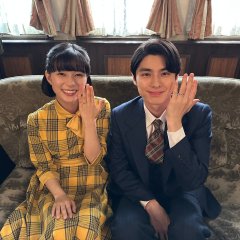
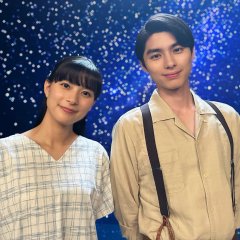
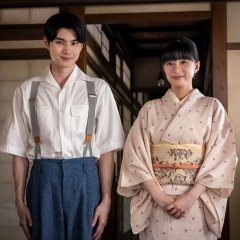
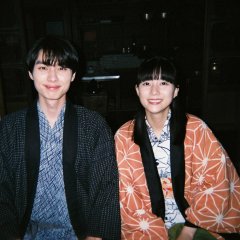
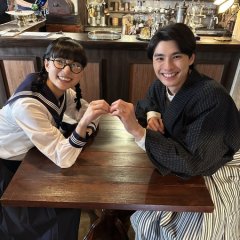
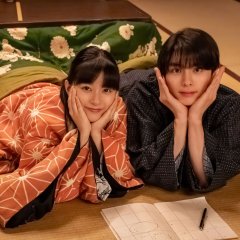
 1
1 1
1
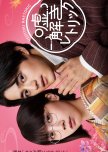


















![[Priority] Japanese Dramas](https://i.mydramalist.com/odVAOt.jpg)
![[Priority] Japanese Dramas](https://i.mydramalist.com/E50zmt.jpg)
![[Priority] Japanese Dramas](https://i.mydramalist.com/QX8DAt.jpg)
![[Priority] Japanese Dramas](https://i.mydramalist.com/jYg4b_4t.jpg)
























